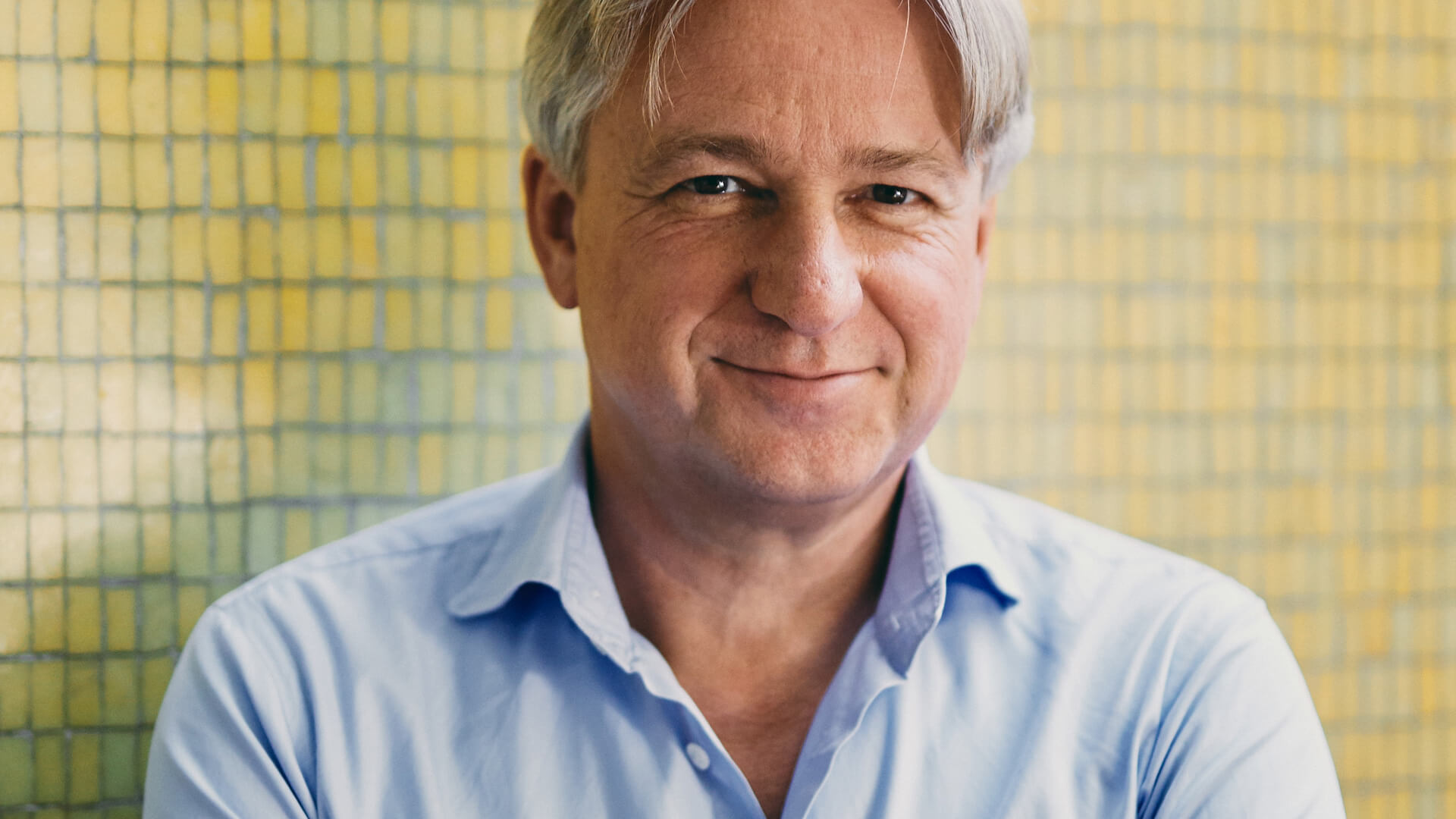You are viewing your 1 free article this month. Login to read more articles.
Boos warns on censorship and hails Manga’s rise at Abu Dhabi Book Fair
Juergen Boos, director of Frankfurt Book Fair, has said the international publishing community needs to be wary of censorship, as he celebrated Germany as the guest of honour at Abu Dhabi Book Fair.
Boos spoke to The Bookseller as the fair opened, with a surge in Manga sales and piracy as a threat to audiobooks on the minds of many attendees.
He said: "There’s a lot of cross fertilisation of [ideas] between Frankfurt and Abu Dhabi – a lot of new things are happening," he said.
"Globally, there are things we need to talk about – censorship for instance, the [type] of censorship that didn’t exist five years ago. Some publishers are really closing their borders to critical thinking, limiting what kind of books are getting sold and shutting down conversations," he added. "Consolidation in the extreme is happening too, and that’s not necessarily a bad thing, but we need to keep an eye on it.".
Germany’s focus at the fair is on selling rights, but Boos said its publishing presence has "a political dimension to it as well".
"I want to get into a critical discourse – we have some panels here related to translation, but also more political ones with our authors too. There are conversations we need to be having about publishing globally, and one of these is consolidation. Conglomerates present book people with a lot of opportunities to get their stories out there in different ways. And at the same time, independent publishing in the global scene is thriving – a Lebanese publisher just told me she was seeing new independents launch every week, which is wonderful considering the recent issues in the country.
"There’s a lot of good things happening, but there are some things we need to keep an eye on globally – there’s light and shadow everywhere."
A Russian delegation is in attendance at Abu Dhabi, after being notably absent from international fairs this year. Frankfurt Book Fair cancelled its collective Russian stand on 28th February in a pledge of solidarity with the Ukrainian people.
Pavel Sergeev, event co-ordinator at Russia’s United Humanitarian Publishers, said it was great to be present in "such a great atmosphere" and he had not noticed "any negative reception so far".
"Unfortunately we had to miss Bologna Book Fair because of the international situation – there are some difficulties for us with the situation with the Russian Federation and the world," he said. "It’s good to keep going. It’s a tough situation. Publishing and book activity is not about government activity – it’s about the common [good] of people, it’s about culture."
Commenting on the Russian presence, Boos said: "UAE tried to be neutral – they didn’t vote in the United Nations against Russia, they must have their reasons for that. We have a different attitude to that, but supporting independent publishers and writers – that is important to us."
Across the fair, publishers are consistently seeing sustained interest in Manga titles, for both younger and adult readers.
Boos credited Netflix with explaining some of the phenomenon, as Anime and Manga series have expanded on the streaming service. "In Europe in particular, Manga is crazy, in Germany and France [especially] there’s 25-30% growth," he said.
Vishal Rana, sales representative at Booktopia Trading for the United Arab Emirates, told The Bookseller he was also seeing a Manga surge in his immediate transactions at the fair, which attracts a large number of families and parents, who often purchase books directly from stands.
"Manga and Harry Potter are doing really well, these books are not just selling [in Abu Dhabi] but also globally too," he said. "Teenagers are enjoying comics but Manga is the biggest selling, and today we have had lots of interest. It’s been growing for almost a year."
Storytel has a stand at the fair for the first time ever this year, after launching its Arabic arm in 2018.
"This fair is important because it attracts a business community – it gives an opportunity to meet the writers, publishers and [consumers], who give us a great insight into how we can tailor our audiobooks to the Arabic market in general," said Ahmed Rewihel, head of partnerships and business development at the global audiobook giant.
"The audiobook market is growing globally, year on year, especially after the coronavirus crisis, because paperback distribution was down because of slow [supply chains] and problems at ports.
"Right now, the supply chain is still an issue, so it is challenging to get print books delivered cross country. With a streaming service like Storytel, there is one month subscription for unlimited titles and people are really loving it."
However, the company is experiencing "huge challenges" with piracy and online payment infiltration in the region, particularly in Saudi Arabia and Bahrain.
"The audiobook piracy on YouTube and SoundCloud in these regions is a problem, and it’s getting worse," he admitted. "We can control it via SoundCloud because they accept our complaints, but it’s still difficult to manage".
Pirates are gaining access to content through the mediums such as the Telegram app, a free cloud-based messaging service. "It happens at a local level, and then doesn’t get the exposure as a big issue – it’s being managed but it’s still happening".
Despite publishers celebrating the "wonderful hospitality" and "friendly" mood of the fair, complaints about on-the-ground logistics, using the digital Covid pass and the procedure around compulsory PCR tests have been levelled at the fair organisers.
"We’re not supposed to compare [this fair] to Sharjah – but it’s difficult not too,” said one British publisher. "It’s very different to mixing with the public so much – there’s a real mingling of family and business, which is nice, but there are children running around and screaming everywhere. And Sharjah is very organised – whereas this is a little bit different.”
Holly-Blue Ross, senior rights executive at Springer Nature, is among those who "experienced a lot of trouble" getting her Covid-19 PCR test organised and receiving the results on time so she could enter the fair, almost having to cancel her first meeting of the day. "The online exhibitor’s catalogue doesn’t seem to be a true representation of the exhibitors either," she added.
Springer Nature is focusing on selling rights in person at the fair, after a resounding success with the virtual opportunities last year.
"From our point of view, this is a preferable fair because there’s not that much competition," Ross said, pointing out Springer Nature is the only representative from the UK’s academic publishing scene at the event. She oversees rights for Japan, Korea, Turkey and the Arab states, and has seen "a lot of growth" in Arabic translation so far.
"It’s always really good to meet Arab publishers in person, that feels particularly important here," she said. "Self-development is continuing to be very popular, and anything to do with Islam and the Quran is of particular interest in this region obviously, but increasingly, I’m also seeing content about Bitcoin and NFTs emerging. New tech with a crossover between humanities and social sciences is a trend I’ve started to notice across the world actually."


















